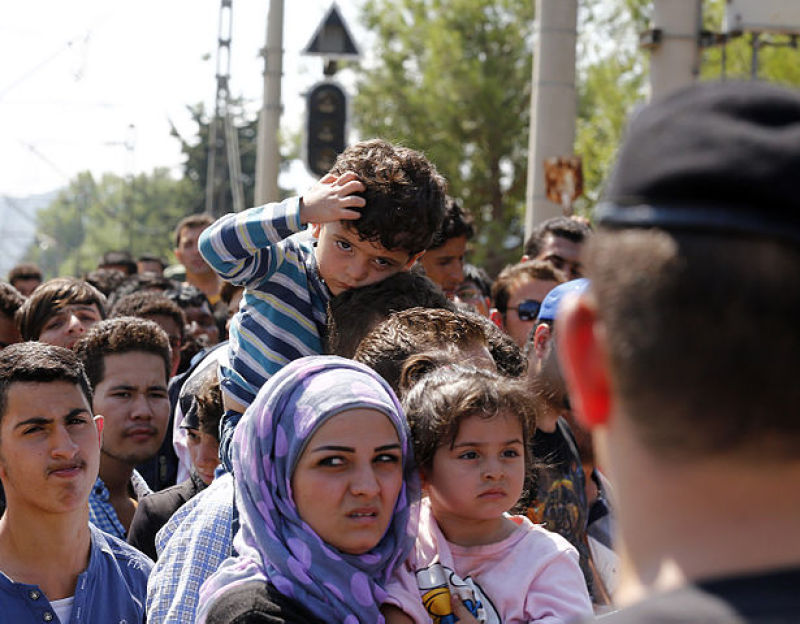
European Union leaders will meet with Turkish Prime Minister Ahmet Davtoglu to strike a deal on refugee crisis this week, which will allow Greece to send the migrants to Turkey, according to media reports.
Donald Tusk, president of the European Council, will mediate a resolution with Davutoglu in a meeting at Brussels, Belgium, where other state leaders will also be present.
The European leaders have already negotiated among themselves on what incentives to pass on to Turkey if it agrees to cooperate with the Union to quell the crisis, but talks with Turkey might prove to be an uphill endeavor for the EU.
"I am cautiously optimistic, but frankly speaking, more cautious than optimistic," Donald Tusk, the president of the European council, said.
After arriving in Brussels, Davtoglu did not talk about the core points of the deal, but suggested that Ankara wanted European leaders to expedite the process of joining EU.
"For us, for Turkey, the refugee issue is not an issue of bargaining but an issue of values -- humanitarian values as well as European values," Prime Minister Davtoglu told reporters.
"Of course, the EU and Turkey, we have the same goal, the same objective -- to help Syrian refugees especially -- and also to have a future in our continent, in a bright manner," he added. "All these events show how Turkey's relationship with the EU and Turkish membership is important not only for Turkey and EU but for all international issues."
The EU, however, wants to focus on the resources Turkey will need to house the migrants till they qualify for settlement in the bloc.
"We need to put all our efforts into achieving an agreement with Turkey. These will be negotiations that will certainly be anything but easy," Merkel was quoted as saying by The New York Times.
She said that some legal and logistical challenges in the deal will have to be overcome, which will provide a guideline on how Turkey can assimilate illegal migrants to Europe. The deal states that for every Syrian refugee who will be sent back to Turkey, EU would accept one in return to be settled in Western Europe.
Merkel also said that the discussions on migrants will also consider the human rights situation in Turkey, and its violent treatment of the Kurds.
"It ... goes without saying that we stress to Turkey, for example, the importance of freedom of the press (and) the freedom of the Kurds," she said. "As important as the necessary fight against the PKK's terror is, [Turkey must take a measured] approach ... for all Kurds."
PKK (Partiya Karkerên Kurdistanê), or Kurdistan Workers' Party, is a separatist organization in Turkey, which is fighting the Turkish state to form a Kurdish nation.
Humanitarian groups have expressed concern over the EU plan of sending the refugees back, which could violate international law on refugees.
"Many refugee and human rights organizations have also indicated that there is a serious legal issue with the proposed one-for-one automatic return of all persons arriving irregularly in the EU from Turkey without an investigation into their international protection needs," said Elspeth Guild, professor at Radboud University Nijmegen, Netherlands.
Meanwhile, the refugee situation has worsened in Greece which is the entry point of migrants into the EU. Macedonia has closed its borders to Greece, blocking the northern route for refugees to move further up from Greece, where they live in unhygienic and cramped settings.
The EU leaders have acknowledged the risk of violation of international law on migration in the deal, and plan to make the return journeys to Turkey supervised by United Nations, and have also agreed to process each asylum application individually.



















